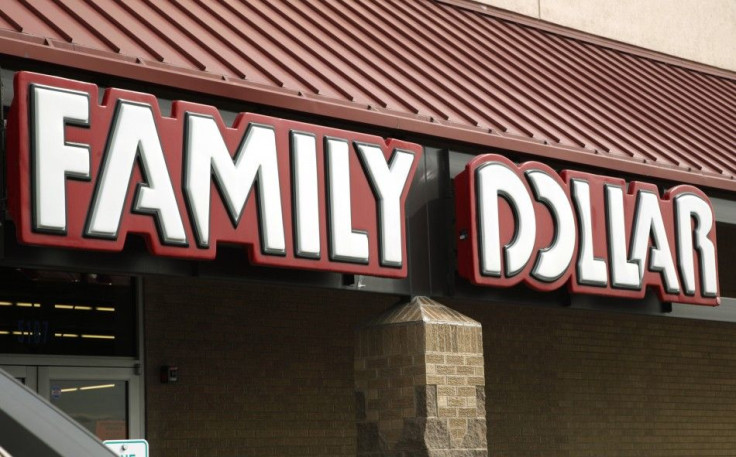The Dollar Store On The Rise

Americans have been hit hard by the Great Recession, and so have the businesses they own and work for.
As consumer spending power crumpled, retailers especially felt the pinch. Luxury cars were harder to shell out for, electronics were no longer flying off of shelves, and every dollar began to matter.
Even before the recession, however, there was one chain that has been making every dollar count for years: the Family Dollar stores.
At least that's Family Dollar's credo, and the way they envision their customers spending.
That consumer, according to ABC News, is more than likely going to be a woman who earns less than $40,000 per year, sometimes less than $25,000 -- which is near poverty if she has children.
"It's usually a single mom in a household typically taking care of kids," Family Dollar President Mike Bloom told ABC News.
The Dollar chains have developed an almost maniacal obsession with targeting that demographic, and they don't take the word "cheap" as an insult.
"If somebody told me I was cheap, I would take that as a compliment," the company's CEO, Howard Levine, told ABC. "That means we are looking for value. That means we don't overpay for stuff."
Levine and the Dollar team look for value everywhere, from store locations to the products their outlets carry. Instead of buying up expensive real estate, corporate prefers to gobble up old storefronts in tiny towns, where a buck goes a long way and where they can hire small work forces to cater to their communities.
Everything's streamlined and cost-efficient at Family Dollar. Instead of advertising with expensive TV spots, Dollar's brass prefers in-store circulars. Admittedly, many of the chain's products come from overseas, but that fits into the company's credo: Buy the best product as inexpensively as you can.
Levine firmly stands by the products his company carries and where they import them from.
"They have a cheap way of doing it, and consumers accept it," he told ABC. "There is no backlash from that, so you got to go where you get the value and you got to go where you have the workmanship and the factories to do that."
While the Family Dollar operates under the umbrella of a "dollar store," most if its items aren't actually a buck. That doesn't mean they're pricey, though. Today, roughly 90 percent of the company's merchandise rings in under $10.
By logic, it's easy to predict that dollar stores would come out on top of any recession, courting and engulfing battered consumers. Howard Levine says this isn't the case though. He admits that Family Dollar prospered in the economic recession, but he also says his stores did well before and after the economic downturn, due to the company's focus on cost efficiency and consumers.
"We would much prefer a strong economy, strong employment. People need jobs, and when people have jobs, they spend money. We do pretty well in a tough time, but we do very well in good times," Levine said.
Across the country, other entrepreneurs are following Levine's lead. Dollar stores--not Levine's--can be seen cropping up in even the toniest ZIP codes. Try Los Angeles, where one store is open on Wilshire Boulevard, and another is set to debut on the ultra ritzy Rodeo Drive in Beverly Hills.
As of today, Levine overseas 7,550 stores nationwide. 500 of those stores opened just this year. The Family Dollar CEO has made millions in his life, but he may very well be his dollar stores' most dedicated customer.
In fact, he just bought a pair of $8 pajamas at one of his stores.
© Copyright IBTimes 2024. All rights reserved.





















